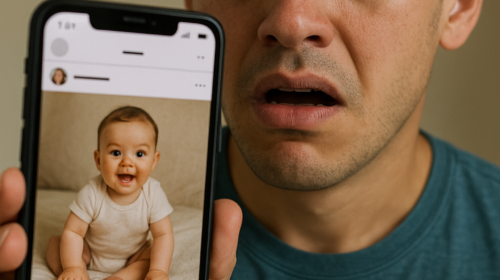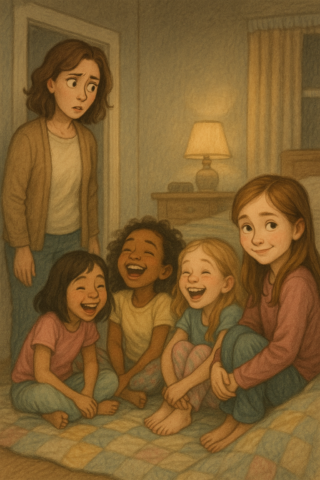Family photos are tiny treasures—snapshots of chubby cheeks, first steps, and long-forgotten birthday parties. Most of us trust that these images, packed away in dusty albums or tucked in drawers, are safe from the outside world. I never imagined I’d open Instagram one afternoon to see my own baby photos… except my cousin, Amanda, had posted them with her name in the captions.
At first, I stared at the screen in disbelief. There was the photo of a little girl grinning from a high chair, mashed peas in her hair. There I was, in my favorite yellow dress, clinging to my dad’s leg. Amanda’s caption read, “Throwback to my first birthday! #BabyAmanda” and “Me and Dad, best buddies from day one.”
Friends and extended family chimed in with heart emojis and comments: “Aww, you were so cute!” “You haven’t changed a bit, Amanda!” All the while, I scrolled, feeling a bizarre mix of confusion, embarrassment, and hurt.

When Family Crosses a Line
I called Amanda, hoping there was an explanation. Maybe she’d gotten our baby photos mixed up—after all, our families spent every holiday together, and our moms dressed us alike for years. But when she answered, Amanda sounded casual, almost annoyed. “Oh, those old pictures? I just thought they were cute! Who cares whose baby photos they are?”
I tried to explain that, actually, it does matter. Those photos were part of my story—my first steps, my family, my memories. Seeing them online, claimed as someone else’s, made me feel invisible in my own history.
Amanda brushed it off. “No one knows the difference. Plus, it gets me so many likes! Lighten up.”
Navigating Family Drama
I didn’t want to start a public argument, but I couldn’t let it go. I reached out to my mom, who was equally appalled. “Those are from your first birthday! I remember that cake disaster like it was yesterday.” Together, we scrolled through Amanda’s feed, tallying up the memories she’d borrowed.
Eventually, I sent Amanda a direct message: “I know you probably didn’t mean harm, but those photos are important to me and my family. Can you please take them down, or at least correct the captions?” She was annoyed, but reluctantly agreed, updating a few and removing others. She never really apologized, but at least my face wasn’t starring in #TBT posts under someone else’s name anymore.
What I Learned
Family can sometimes blur the boundaries between “mine” and “yours”—but our stories, our faces, and our memories deserve respect. I learned that it’s okay to speak up for yourself, even when it feels awkward or petty. Your childhood isn’t a collection of props for someone else’s highlight reel.
Later, Amanda and I patched things up (with some distance). We agreed to check before posting old photos. My mom helped me digitize our albums, putting me in control of my own past.
Final Thought
If someone takes your memories and claims them as their own, don’t be afraid to ask for the truth to be told. Your story is yours—honor it, protect it, and know that it’s okay to want your own name on your own history.


